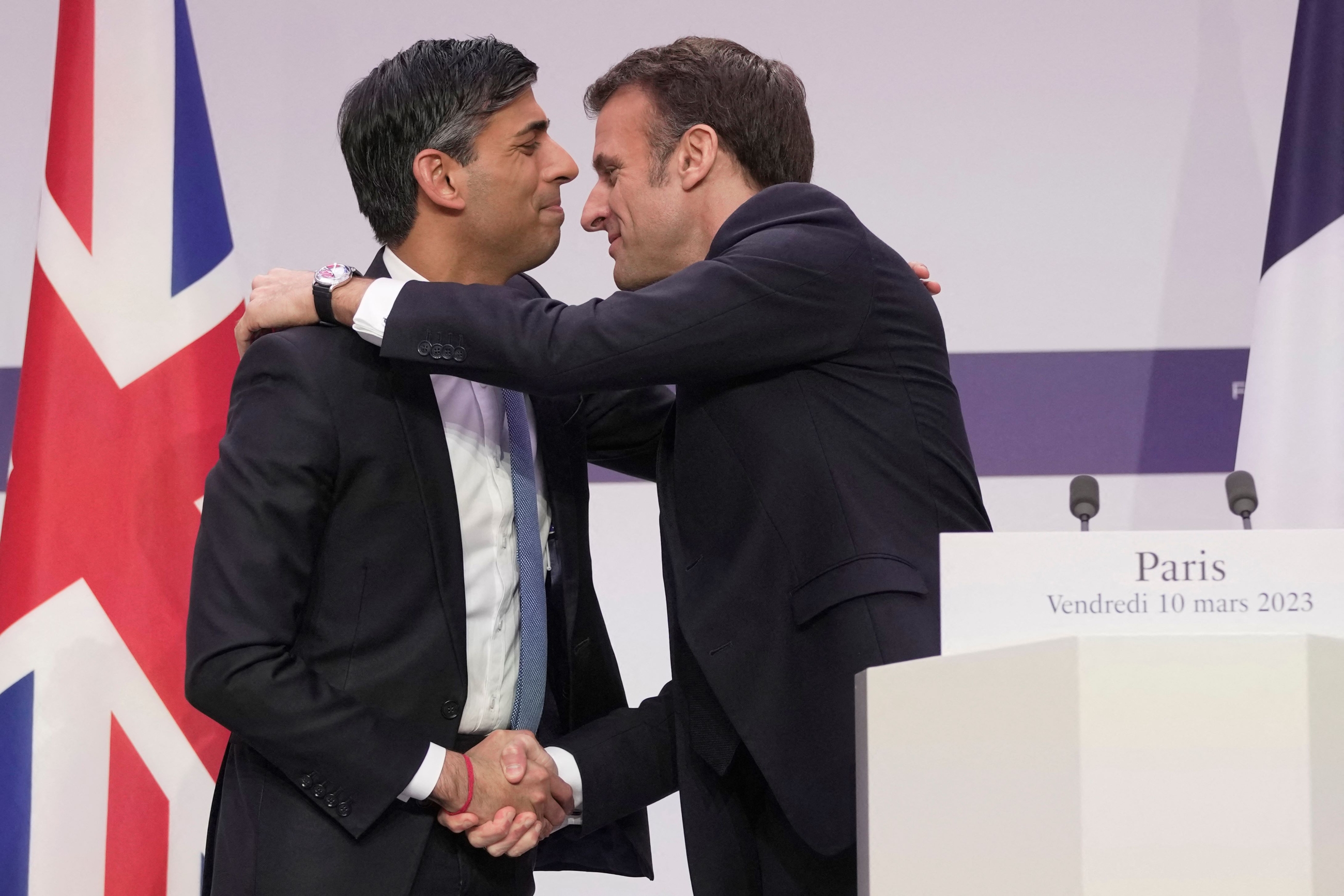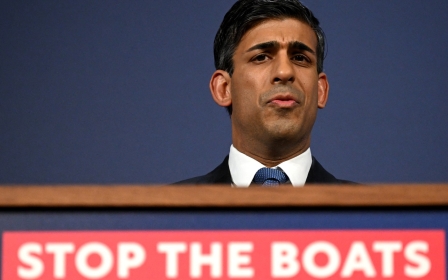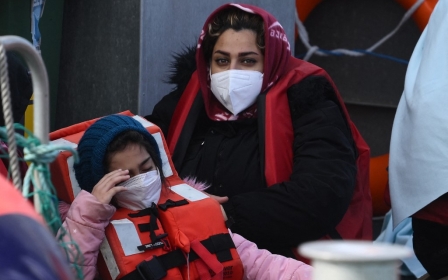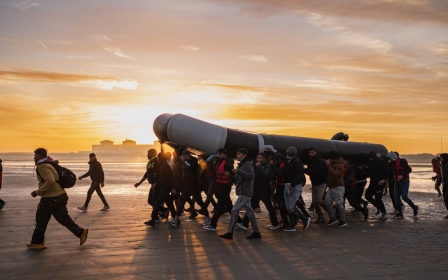Small boats: UK and France agree new deal on refugee Channel crossings

The UK and France have agreed a new deal to crack down on people crossing the Channel to England, following talks in Paris between President Emmanuel Macron and Prime Minister Rishi Sunak.
The issue of refugees and migrants, most of whom are from the Middle East and North Africa, crossing the Channel has become a major talking point for the UK's Conservative government, which has proposed legislation that would deny anyone "illegally" entering the UK the right to claim asylum.
Friday's deal, agreed during negotiations over a post-Brexit settlement, will see London step up funding to France over the next three years to a total of €541m ($577m) and allow the deployment of "hundreds" more French security personnel across the border.
'A disgusting expansion of our failed agenda of brutality and a shameful point in our history'
– Zoe Gardner, refugee rights advocate
Sunak said the agreement marked a "new beginning, an entente renewed" between France and the UK, pointing out that "the relationship between our two countries has had its challenges in recent years".
Macron also said the talks marked a "new start" between Paris and London.
Under the deal, for the first time the UK will help fund a detention centre in France to help authorities prevent people crossing the Channel, and drones and surveillance technologies will be deployed to help monitor the area.
Refugee campaigners, who have already been highly critical of the UK government's policies on the Channel crossings, lambasted the new agreement.
Zoe Gardner, a campaigner on refugee rights, condemned the deal as "debased and disgusting".
She wrote on Twitter: "Not content with mass detention in the UK, we'll pay £480 million to lock refugees up in France.
"A disgusting expansion of our failed agenda of brutality and a shameful point in our history."
'Deeply concerned'
More than 45,000 refugees and migrants arrived in the UK last year by crossing the Channel on small boats.
According to official statistics, in 2021 almost half of all those who made the journey were asylum seekers from Afghanistan, Iran, Eritrea, Sudan or Syria.
In the first nine months of 2022, Albanians accounted for 35 percent of arrivals, the highest number of any group. Afghans accounted for 15 percent, Iranians 11 percent and Iraqis 10 percent.
Iranian and Iraqi nationals represented nearly half of all small boat arrivals between January 2018 and June 2022 - 28 percent and 20 percent respectively.
Both leading political parties in the UK have spoken of the need to prevent the crossings, which they said have been lucratively exploited by people smugglers.
However, legislation announced by the government on Tuesday has been widely condemned as violating the country's obligations under the 1951 Refugee Convention.
On Friday, the United Nations' Children's Fund (Unicef) said it was "deeply concerned" about the law's impact on minors.
Jon Sparkes, head of Unicef UK, said the bill could prevent families and children seeking asylum in the country.
"For almost all children fleeing conflict and persecution there is no safe and legal route into the UK," he said.
Middle East Eye propose une couverture et une analyse indépendantes et incomparables du Moyen-Orient, de l’Afrique du Nord et d’autres régions du monde. Pour en savoir plus sur la reprise de ce contenu et les frais qui s’appliquent, veuillez remplir ce formulaire [en anglais]. Pour en savoir plus sur MEE, cliquez ici [en anglais].




